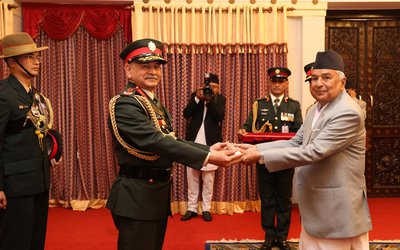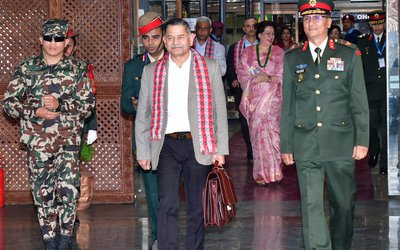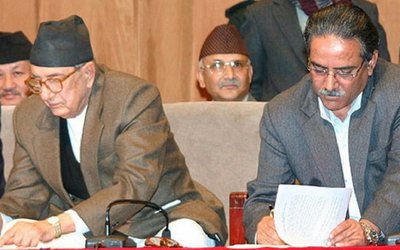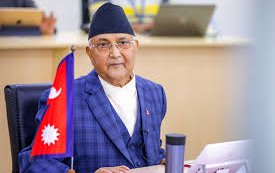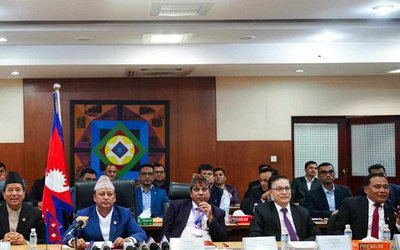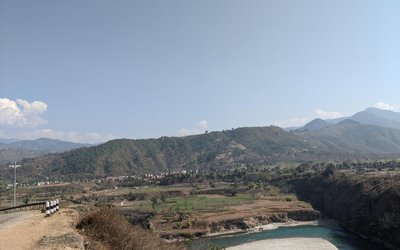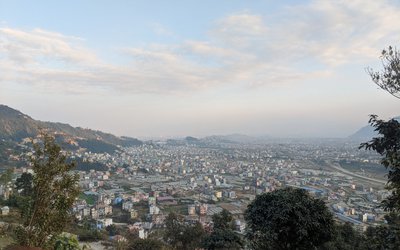
With almost two months of prolonged general strike in tarai and disruption of supply of the petroleum products, Nepal’s education sector has been badly hit throughout Nepal. Even the Ministry of Education is considering rescheduling its annual calendar.
UNICEF estimates that over a million Nepalese children’s education is at risk due to the disruption in the supply of petroleum products and the ongoing general strikes and agitations.
"We are seriously concerned that the future of millions of children in Nepal is being put in jeopardy with the current situation in the country,” said Tomoo Hozumi, Representative, UNICEF Nepal. "Children, particularly in the southern Terai plains and the mountain districts in central and central-eastern parts of the country that were hardest hit by the earthquakes earlier this year, have been highly affected by the current situation."
According to UNICEF, one of the most apparent impacts has been on children’s access to education. UNICEF said that across the country, in the last six months following the earthquakes, schools have remained open for about half the number of days they were meant to be open.
UNICEF pointed out that in the nine districts in the central and eastern plains alone, closure of schools over the last two months has affected the education of more than 1.6 million school children. In the past six months, schools in Parsa district remained open only for 5 days instead of the stipulated 122 days.
Schools that were closed for five weeks in the aftermath of the earthquake in the affected districts have been trying to make up for lost academic days by opening during holidays. However, many of them have also been affected due to the current situation. Global experiences have shown that when children are out of school for an extended period of time, there is a risk that they may never come back and drop out of schooling altogether.
At a time when ongoing agitation has affected the markets and schools, many schools in the Terai are resorting to running classes covertly in order to make up for lost teaching and learning hours.
The press release of UNICEF said children are going to school in the early morning hours without wearing school uniforms so as not to be identified as students. It is extremely sad that children have no other way than studying ‘undercover.’
Regardless of situations, reasons and backgrounds, all children have distinctive rights of their own as individual human beings that adults cannot and must not violate as the same human beings. The right to education is one of the most important of all. The fact that children are going to schools without wearing uniforms in the current situation also pushes them into further jeopardy of being caught up in disturbances UNICEF said.
UNICEF has appealed to all to seriously regard children as Zones of Peace who must be free from the impact of political tension, unrest and conflict as it has been agreed in Nepal many times earlier since 2003.
"We adults have a clear obligation to show the younger generation what our society values, setting positive examples on important principle-related matters such as the right to unhindered access to education, anytime, everywhere.
“We owe it to children to prove that the commitments we adults have made for them do not stay only on paper. Let us work together to translate them into actions and reality. Let us work together to provide children an atmosphere free from violence, stress, fear and dearth. Let us work together to enable them to grow up as healthy and capable citizens of Nepal," said UNICEF’s country representative Tomoo Hozumi.
If the political parties and government do not take necessary steps to end the deadlock, more children will have to suffer. “We are concerned about the situation and taking necessary steps to open the schools,” Minister of Education Giriraj Mani Pokharel told New Spotlight.
- PM Oli's Visit To China: Geopolitical Implications
- Nov 19, 2024
- NEA: Kul Man Ghising, A Cool Man
- Oct 28, 2024
- DASHAIN FESTIVAL : Festival of Unity
- Oct 04, 2024
- NEPAL-CANADA Bilateral Meeting
- Oct 04, 2024
- MIDDLE BHOTEKOSHI: Final Stage
- Sep 23, 2024

